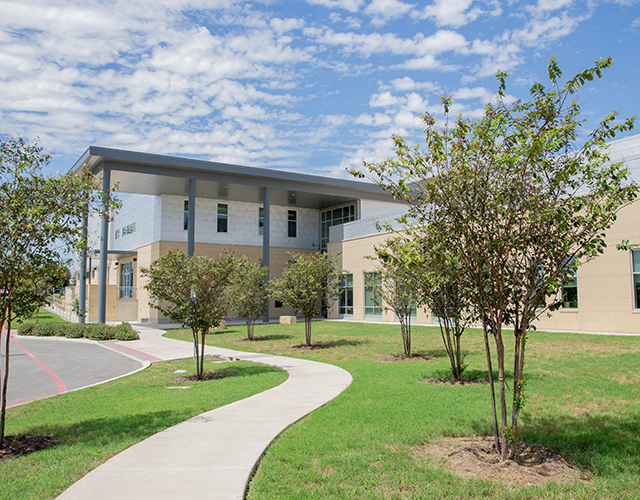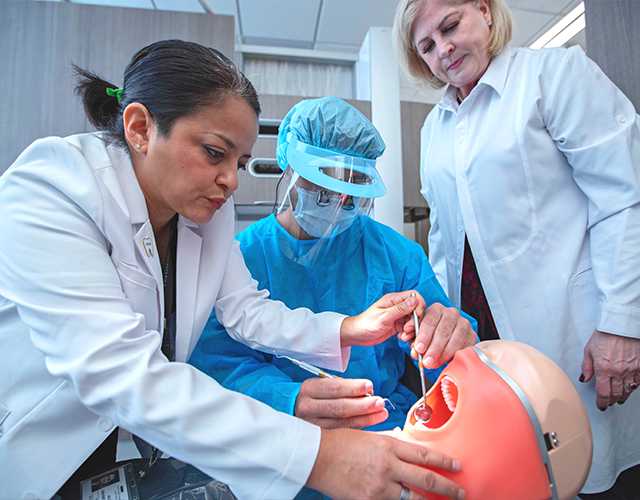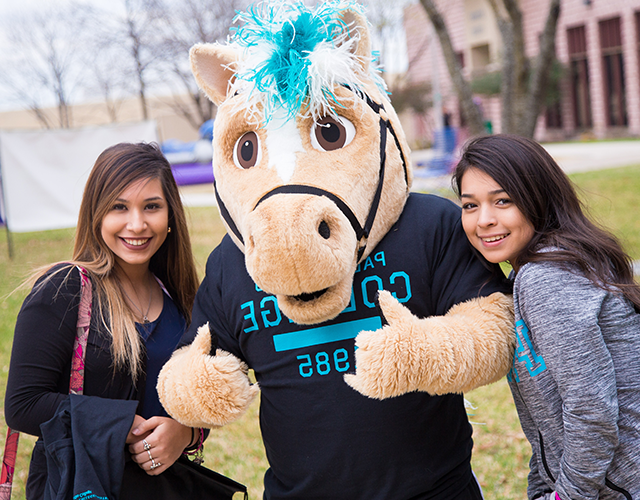PAC advocates for students’ needs
September 27, 2018
 It’s been nearly two years since Palo Alto College launched the Student Health, Advocacy, Resources, and Engagement (S.H.A.R.E.) Center, an on-campus resource aimed at ensuring students’ basic needs, like food and healthcare, are met. It is one of the first programs of its kind at a community college, and early results show that the services help ensure students’ success in higher education.
It’s been nearly two years since Palo Alto College launched the Student Health, Advocacy, Resources, and Engagement (S.H.A.R.E.) Center, an on-campus resource aimed at ensuring students’ basic needs, like food and healthcare, are met. It is one of the first programs of its kind at a community college, and early results show that the services help ensure students’ success in higher education.
“We really have a responsibility to do everything and anything we can to help keep them in school and help them achieve that educational goal that they’ve set for themselves,” said Katherine Beaumont Doss, Palo Alto College’s dean of student success. “What we’ve found is that the students who are going to the S.H.A.R.E. Center are getting the support, they’re getting the good grades, they’re staying in school, and they’re completing their classes.”
 To spark regional discussion about the value of providing these comprehensive services to college students, Palo Alto College hosted its inaugural Advocacy Symposium on Friday, Sept. 21. The need for full-service, holistic initiatives – like the S.H.A.R.E. Center – has been a national conversation for the past five years or so, according to Dr. Sara Goldrick-Rab, professor of higher education policy and sociology at Temple University and founder of the Hope Center for College, Community, and Justice; she presented her compelling research on the subject during the keynote address at the Advocacy Symposium.
To spark regional discussion about the value of providing these comprehensive services to college students, Palo Alto College hosted its inaugural Advocacy Symposium on Friday, Sept. 21. The need for full-service, holistic initiatives – like the S.H.A.R.E. Center – has been a national conversation for the past five years or so, according to Dr. Sara Goldrick-Rab, professor of higher education policy and sociology at Temple University and founder of the Hope Center for College, Community, and Justice; she presented her compelling research on the subject during the keynote address at the Advocacy Symposium.
“They [colleges and universities] know there’s a problem. They’re facing the problem. Doing something is very different,” said Goldrick-Rab, after estimating that Palo Alto College is among only five percent of the nation’s community colleges to have a program to providing for students’ basic needs. “Actually trying to activate the community; actually trying to put more resources into place? No, I don’t think that’s really widespread yet.”
More than 50 percent of today’s college students come from limited-income families, and 40 percent of community college students have a child or other dependent in their care. But with the rising cost of living, declining value of minimum wage, and a financial aid system that’s built around family financial support, many students struggle to eat regular, balanced meals, pay their bills, find childcare accommodations, and more; all of which affect a student’s performance in the classroom.
“If those [basic] needs are not secured, the students can’t do the rest,” said Goldrick-Rab, referring to Maslow’s Pyramid (pictured below). “The psychological results of scarcity are serious. When cash rules your everyday – when everything you see is in dollars and cents – it really compromises you… If you can alleviate the stress and the scarcity, the student can return to higher levels of cognitive function.”
 |
| Click to Enlarge |
The S.H.A.R.E. Center’s Emergency Aid Program – which provides students with funds for unforeseen, unplanned and unavoidable events that demand immediate attention –helps alleviate that stress and scarcity, which would otherwise distract students from their studies. After granting the emergency aid, the S.H.A.R.E. Center then connects recipients with other financial resources, like budgeting information and grants and scholarships.
Goldrick-Rab applauded Palo Alto College’s S.H.A.R.E. Center for its widely-accessible resources, which goes beyond emergency aid to offer services like a food pantry and professional clothing closet.
The widespread need for such services are systemic, not isolated cases, according to Goldrick-Rab. Institutions of higher education have a responsibility to their students to help ensure they are successful, regardless of their personal or financial situations.
“Having these resources does not turn a college into a social service agency,” said Goldrick-Rab. “Put some services on a college campus… so that it feels like being in college.”
The most scalable, immediate change colleges and universities can make, according to Goldrick-Rab, is to reorient the workforce toward the student and instilling a culture of care for the whole person. It’s that culture, which Palo Alto College calls putting “Students First,” that led to the exploration of its students’ needs – and ultimately launching the holistic resources available through the S.H.A.R.E. Center.
To learn more about the services offered, visit ooohang.com/pac/share/.
Related Content
"National expert lauds Palo Alto College's focus on student needs" – San Antonio Express-News, Sept. 2018
"On Campus Buzz: Advocacy Symposium" (video) – Palo Alto College, Sept. 2018
"Student Life expands to create well-rounded student experience" – Palo Alto College, Sept. 2017



